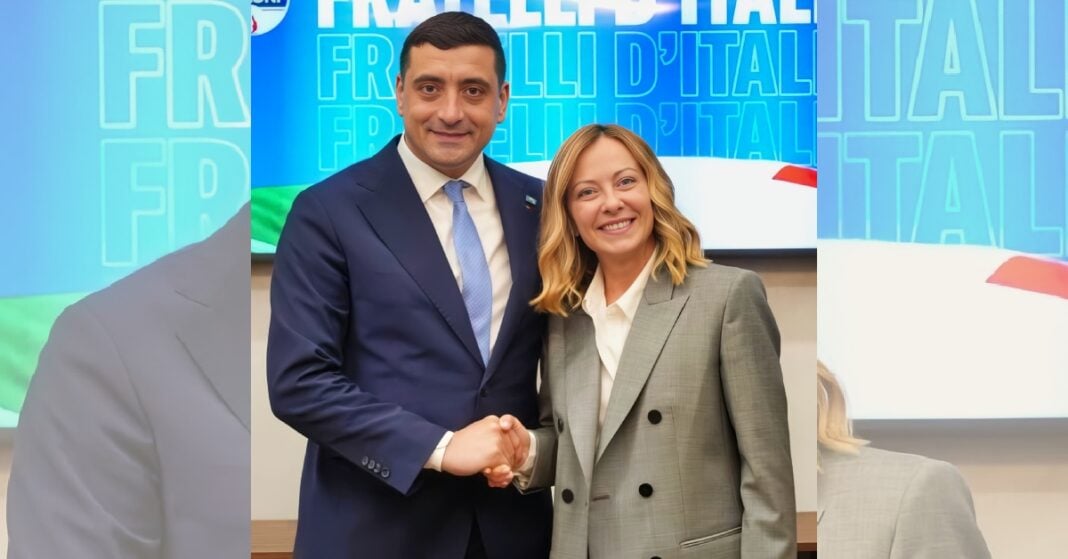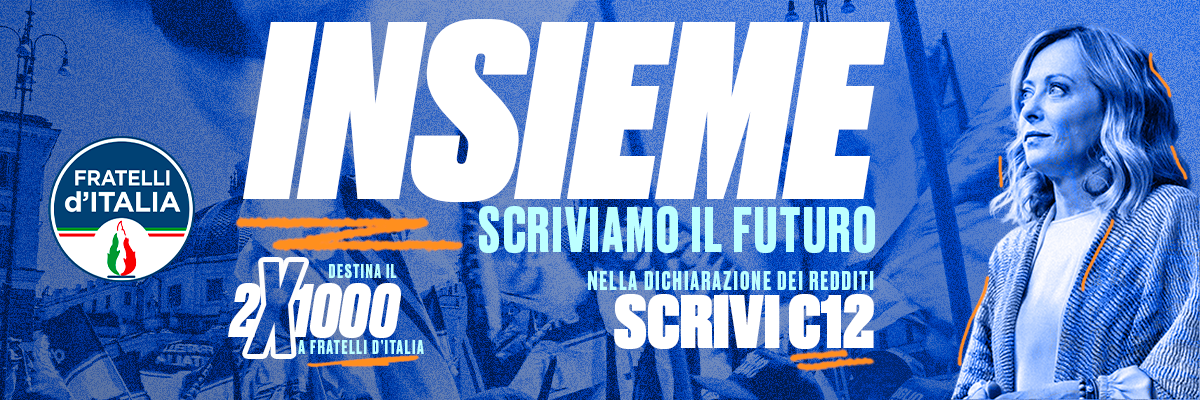“I greet you from here, where Emperor Trajan built the Column. I do not want any more empires. I want us to live in a Europe of sovereign nations. In these months, Romania has awakened’.
It is hard to imagine a stage more charged with history and symbols: Trajan’s Column in the background, and George Simion addressing his fellow citizens in a video that has the tone of a historical declaration. It is not just identity rhetoric. It is a precise message to Romania, Italy and Europe: the time for awakening is now. And Rome, more than just a stop on the political tour, becomes the cultural and geopolitical crossroads where imperial memory and patriotic vision of the future intersect.
The leader of the AUR party, given as favourite for the presidential ballot on 18 May, met Giorgia Meloni at the Fratelli d’Italia headquarters in Via della Scrofa. Also hosting the meeting were the leaders of the European Conservatives and Reformists Party (ECR), of which Simion is a member along with Meloni, Morawiecki and Marion Maréchal. A weighty summit, deliberately kept away from the institutional palaces, but no less charged with strategic implications. On the contrary.
Meloni, today premier and key figure of the continental conservative front, reiterated – albeit in a discreet tone – the relevance of the Romanian vote as a junction in the European game. If Simion wins, in fact, the ECR would win a second seat in the European Council: a result that would shift the balance not only between political families, but between the very visions of Europe. No longer the Europe of quotas and commissioners, but that of roots, communities and national identities.
A continental challenge
The significance of the Romanian vote transcends national borders. At stake is not only the succession to Klaus Iohannis, but the signal that Bucharest can send towards Brussels. The conservative, patriotic, anti-centralist wave, which from Budapest to Warsaw, from Rome to Madrid, calls for a less technocratic Europe that is closer to the people, could find in Simion a new centre of gravity in the East. And this explains why Western chancelleries are following this election campaign with disquiet.
Italian support, in particular, was explicit. Meloni, while maintaining an institutional profile, made her endorsement felt in the most effective form: receiving Simion in her party, and letting the group photo with Morawiecki and Maréchal do the talking. It is the same strategy Meloni uses to consolidate the network of the conservative front: less proclamations, more operational alliances. The objective is clear: to strengthen an alternative bloc to the EPP, such as to force it to choose between continuity with the socialists or a new patriotic majority.
The diaspora factor
There is another key element in Simion’s Roman visit: the foreign vote. Romania is among the European countries with the highest percentage of emigrant citizens, and Italy hosts the largest Romanian community in the EU: over one million people, many of them active voters. Speaking to them from Rome, with Meloni and ECR’s top management at their side, means sending out a message that is not only identity-based, but strategically targeted: Romania can count on Italy. And vice versa.
Simion himself made it clear: ‘Together we have built a patriotic and conservative movement at European level that will also win power in the European institutions’. The language is sharp, at times warlike, but adheres to a political grammar that no longer gives discounts. There are no longer just parties, but fronts. No longer just elections, but historical challenges.
The cultural dimension
The explicit recovery of the cultural link with Rome is also striking. Simion speaks of Trajan’s Column not as an archaeological monument, but as a founding memory of Romanity. In the national-Romanian narrative, the conquest of Dacia and Roman colonisation are at the very heart of national identity: ‘We are descended from Rome’ is not just a slogan, but an act of belonging. And it is here that patriotism is intertwined with geopolitics: to evoke Rome is to claim a Latin and Christian Europe, as opposed to the soulless technocracy of the current European institutions.
18 May 2025: one vote, many directions
The 18 May vote in Romania will not just be a referendum between two candidates. It will be a thermometer of the direction Europe can take. On the one hand, a technocratic and progressive model that has lost its grip on the popular classes. On the other, a network of patriotic leaders who want to restore centrality to states, cultures and peoples. The fact that this confrontation is being played out from Rome – no longer the imperial centre, but the beating heart of a new conservative alliance – is a sign of the times.
And should George Simion really win, Trajan’s Column will have witnessed, two thousand years later, not a new conquest, but a return.
We will once again be in Bucharest to follow the story and tell you about it.
View this post on Instagram



